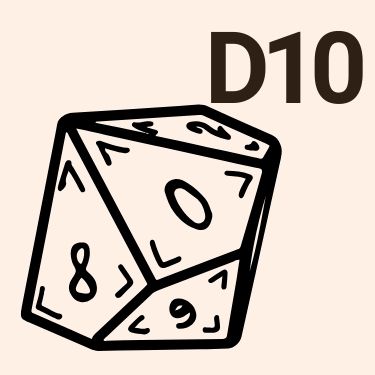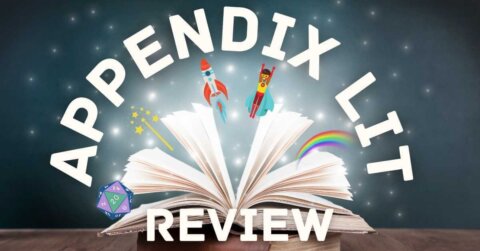Let’s dive into the first book of the season: The Unbroken by CL Clark. I chose this novel initially because it had great reviews and the premise intrigued me—a guard from a conquered nation going back to her native country and being confronted by the rebel cause. It sounded like a bit of a classic take on a familiar fantasy conflict. I was wrong! This book delivered so much more than I expected. It’s not just about rebellion; it’s a multiperspective exploration of colonization, identity, and the complex dynamics between the colonized and their oppressors. Clark layered familiar fantasy elements with complex themes that are often overlooked or glossed over in the genre. This offered fresh thought-provoking insights into racial intersectionality within power and resistance.
The Unbroken Earns a D10
The world Clark built is vivid, and graciously educational if you are white and trying to unlearn your own systemic views and biases. The colonized protagonist grapples with her internalized biases, loyalty, justice, and morality, while reconciling the larger narratives of empire, self-worth, and the betterment of her people. I give The Unbroken a D10. Though the book has been out for a few years, there may be spoilers as I explain why it earned a D10. If you stop now, know it’s a fantastic read—otherwise, read on.

Breakdown and DM Inspiration
D10 books are considered dual purpose: They are versatile and just waiting for the right person to be inspired. They often blend the d6 and d8 qualities and leave you eager for more.
As a GM, I love stories that emphasize the consequences of characters’ choices. While I didn’t like all of the characters’ choices, and a few made me question their motives, I understand that sometimes misunderstandings or miscommunications are necessary to create dramatic moments. That said, most character agencies felt organic grounded on what the character knew in the moments. My storyteller side was inspired by the way Clark kept the characters in place for the plot without forcing a “DM railroad.” This novel captured that skill perfectly. It doesn’t punish its characters, instead it holds them accountable. Multiple times, a character suggested going to a place they believed held answers—both enemy and ally warned against it as unwise. When the character still went to that place, the group suffered dire consequences of that decision.
Another character made a decision that initially had me yelling, “Why??” However, it reminded me of players who quietly take character actions apart from the group’s plan**, forcing me as the DM to think on my feet, and the other characters to try to figure out what the crap went wrong and what to do next. Those unexpected decisions keep the game fresh, and The Unbroken feels like that—full of surprises and consequences that reshape the story as it unfolds.
**I want to make it clear this is not some player being a dick by using the poor excuse, “it’s what my character would do”. This is instead a chaos monkey player who confers with the other players and has built respect for their actions before doing something chaos wieldy.
I found out later that Clark drew inspiration from the French-Algerian war for this novel and were clear they didn’t want it to be a historical fiction. The use of the French Imperial era as inspiration was clever. Having the aristocrats speak French, the way they interacted with one another and the grandness of their self worth, combined with rich descriptions of the settings and cultures, it was easy to visualise that type of peak imperial/colonial power. It made the world feel incredibly immersive. This is also what made teh inspiration very specific in this book. I would not take the elements from this into any game. It would have to be with specific characters, settings, or players otherwise the effects are going to be lost.
There are multiple excellent NPCs in this book who could work in a game as antagonists and/or allies alike. Others are great for background or plot connections that can be used to cause stressors or drive for characters, or add elements of “hmmm” to the PC decision making process. Two of the main characters had a relationship that I have been able to do a similar thing with in my games with one or two players to great effect. Again, these are very much know your player story tactics.
The Trouble With Pacing
Beyond the points I’ve mentioned, my only critique is that the ending felt a bit rushed. However, as someone who’s had to wrap up a game session on time, I completely understand that necessity. This is a trilogy and I think the pacing of the conclusion will feel more natural once we see the full scope of the story.
Final Thoughts
In all, The Unbroken exceeded my expectations. This book provides a lot to draw from, both on a surface level and as more complex concepts to be aware of or consider when writing adventures or character backgrounds. Clark skillfully weaves themes of colonization, rebellion, and personal identity into a richly compelling fantasy world. I can’t wait to see where the series takes us next.




0 Comments